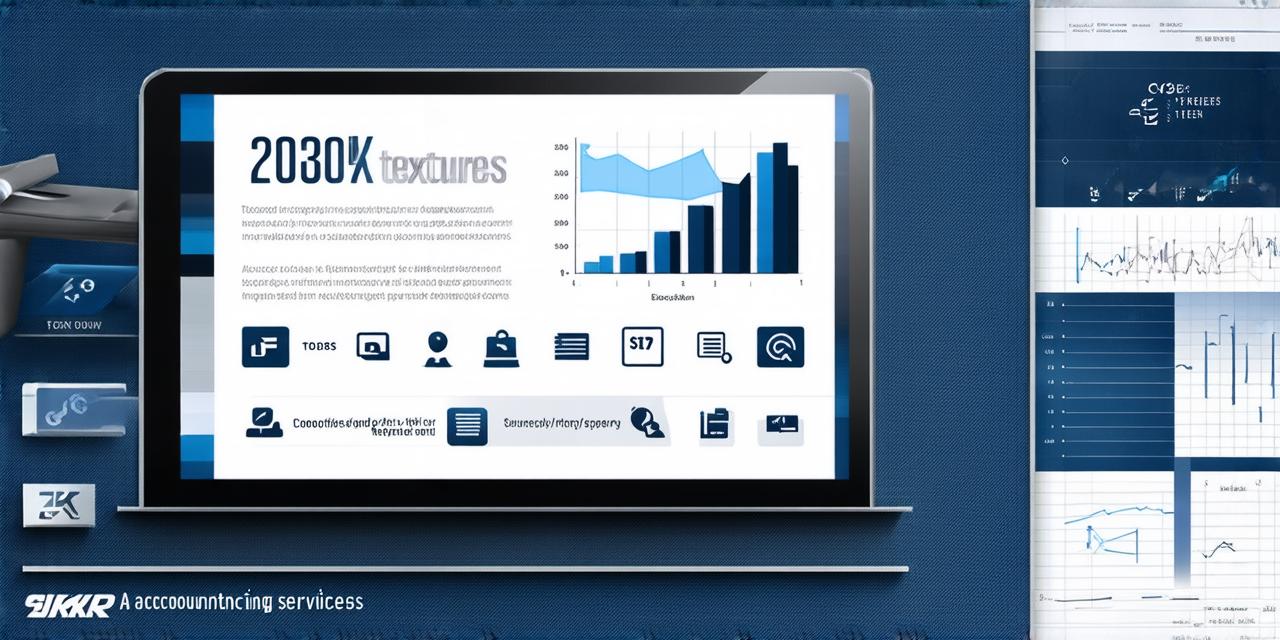Accounting is a crucial aspect of any business.
Accurate financial records are essential for making informed decisions, applying for loans, and complying with regulations. However, managing an in-house accounting department can be costly, time-consuming, and complex, especially for small and medium-sized enterprises (SMEs).
Outsourcing accounting services is a popular solution that allows businesses to outsource their financial tasks to a third-party provider.
In this article, we will explore the benefits and risks of outsourcing accounting services, case studies, personal experiences, expert opinions, and real-life examples to illustrate the points being made.
Benefits of outsourcing accounting services
Cost savings
One of the main reasons why businesses outsource their accounting tasks is to reduce costs. Outsourcing can save businesses money in various ways. For example, hiring an in-house accountant can be expensive.
Salaries, benefits, and office space are just a few examples of the expenses that businesses have to pay when they hire an in-house accountant.
On the other hand, outsourcing providers usually charge a fixed fee based on the number of hours worked or the amount of work done, which means businesses only pay for what they need. Additionally, outsourcing providers often have lower overhead costs than in-house accountants, which allows them to offer their services at a lower price.
Expertise and knowledge
Another benefit of outsourcing accounting services is that it provides access to expertise and knowledge.
Outsourcing providers usually have experienced accountants who are specialized in specific areas such as taxation, financial planning, and audit. This means that businesses can take advantage of the knowledge and skills of these experts without having to invest in expensive training for their in-house accountants.
Flexibility
Outsourcing accounting services also provides flexibility.
Businesses can choose from a variety of services based on their needs, such as bookkeeping, tax preparation, or financial analysis. Additionally, outsourcing providers usually offer different levels of service, which allows businesses to scale up or down as needed. For example, a business that only needs help with its taxes during the busy season can outsource its accounting tasks temporarily.

Time savings
Finally, outsourcing accounting services can save businesses time.
Accounting tasks can be time-consuming and complex, especially for businesses with limited resources. Outsourcing providers usually have specialized software and processes that allow them to complete these tasks quickly and efficiently. This means that businesses can focus on their core activities while the outsourcing provider takes care of the accounting tasks.
Risks of outsourcing accounting services
Communication and cultural differences
One of the main risks of outsourcing accounting services is communication and cultural differences. Businesses need to ensure that they communicate effectively with their outsourcing providers to avoid misunderstandings or errors.
Additionally, businesses should be aware of cultural differences that may affect the way the outsourcing provider works or perceives things.
Security and privacy concerns
Another risk of outsourcing accounting services is security and privacy concerns.
Businesses need to ensure that their financial data is secure and protected from unauthorized access. Additionally, businesses should be aware of the data protection laws and regulations in both their country and the country where the outsourcing provider is based.
Quality control and oversight
Businesses also need to ensure quality control and oversight when outsourcing accounting services. They need to have a clear understanding of the level of service that they expect from their outsourcing provider and ensure that it meets their expectations.
Additionally, businesses should have mechanisms in place to monitor and evaluate the performance of their outsourcing providers.
Case studies and personal experiences
ABC Corporation
ABC Corporation is a small manufacturing company based in the United States. The company had an in-house accountant who was responsible for bookkeeping, tax preparation, and financial analysis. However, the in-house accountant was overwhelmed with work and could not keep up with the company’s growing needs.
The company decided to outsource its accounting tasks to a third-party provider based in India. The provider offered a range of services, including bookkeeping, tax preparation, and financial analysis, at a fixed fee based on the number of hours worked.
The company was impressed with the provider’s expertise and knowledge. The provider had experienced accountants who were specialized in specific areas such as taxation and financial planning. Additionally, the provider had specialized software and processes that allowed them to complete the accounting tasks quickly and efficiently.
The company also appreciated the flexibility that outsourcing provided. They could choose from a variety of services based on their needs and scale up or down as needed. For example, during the busy season, the company increased the number of hours worked by the provider to handle the additional workload.
However, there were some challenges. The company had to ensure effective communication with the provider to avoid misunderstandings or errors. Additionally, the company had to be aware of cultural differences that may affect the way the provider worked or perceived things.
